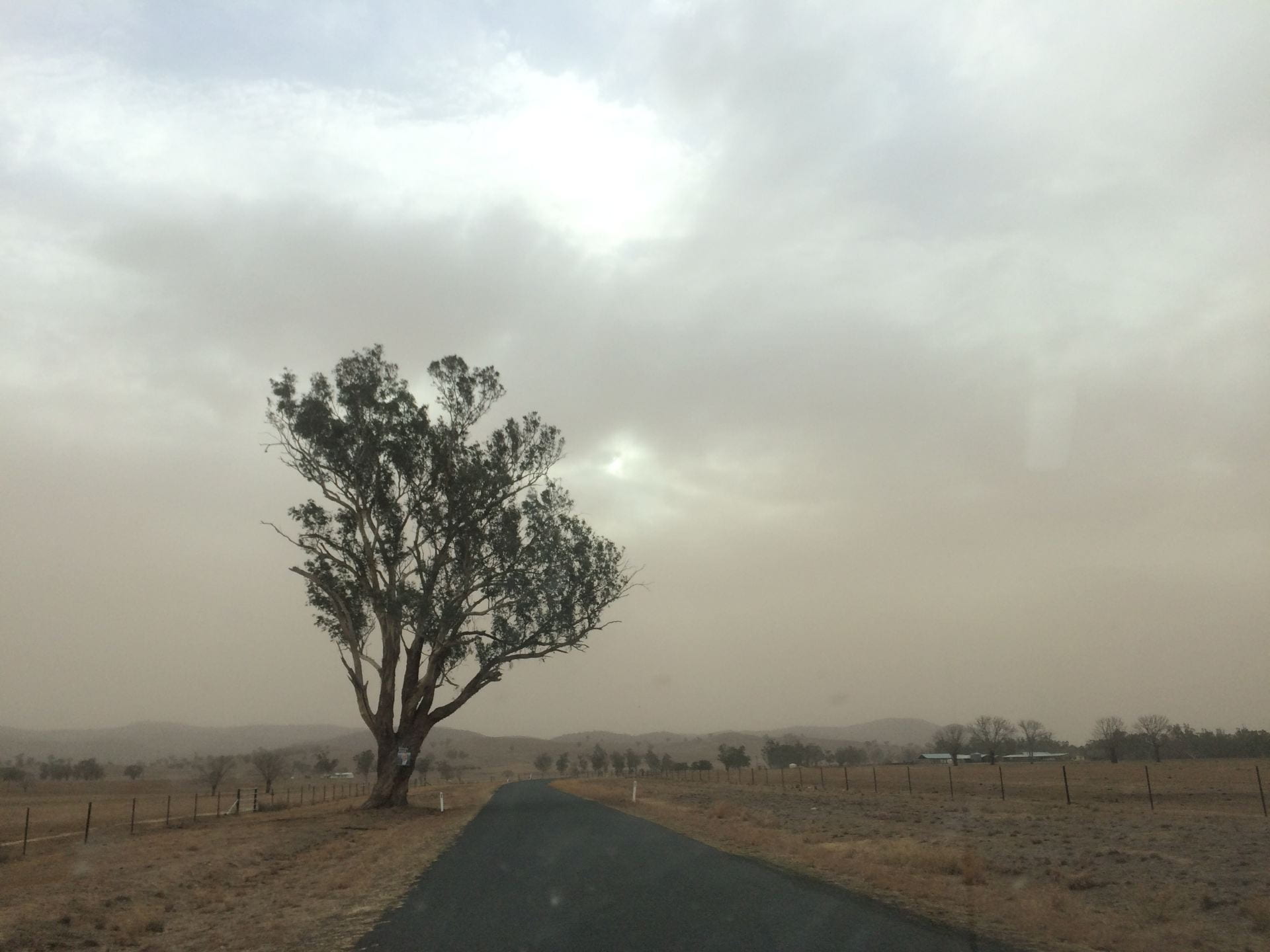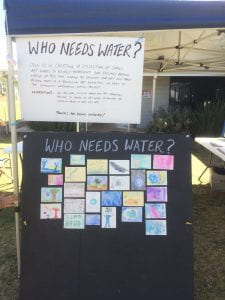A short report by Jennifer Mae Hamilton
Driving to Groundswell on the weekend felt like I was in a disaster movie or the end times. Maybe both. A hot and powerful westerly blew like nothing I’d ever witnessed before. Dust was blocking out the sun and masking the road like a thick dirty fog. It was moving chaotically in every direction. We were slowed heavy water trucks hauling water to the next tank that’s run dry. All the while my phone was beeping: “How are you in the fires” and “It will be a miracle if her house doesn’t burn”. The one comfort driving through in the over-cleared, over-grazed, bare, dusty, dry dry dry land was that the possibility of fire there was negligible because there was nothing left to burn.
The destination was Bingara and an event marking the end of a multi-year collaboration between the collective known as the Kandos School of Cultural Adaptation and select group of artists, farmers and scientists from all over. The event (https://www.ksca.land/event/2019/9/7/groundswell-where-art-farming-and-science-meet) was held on unceded Gomeroi Country at Gwydir Shire Council’s Living Classroom. The Classroom is an education and demonstration site for different methods of food growing, carbon sequestration, dam regeneration, and soil health.
With some new collaborators, I was there to put up a little gazebo called “The Community Weathering Station” (CoWS) which is a collective response to the drought in Armidale. Weathering is a concept I’ve been developing through my research for a while – it is a way of imagining how we embody and live in a climate changing world; it is a tool to guide how we adapt and transform, relate, but also how we are marked by, or weathered by, those experiences and changed by them. It is about how we change and pull through. CoWS is an experiment in turning this from theoretical concept into reality (http://weatheringstation.net).
In Armidale we are 150kms east of Bingara and nearly 1km above sea level. We are on unceded Anaiwan country. And, if it doesn’t rain, the town will probably run out of water in October 2020. While Armidale is surrounded by farmland, mostly cows and sheep, the town itself is a regional education hub with a university and heaps of schools. As such, in town our relationship with water is more akin to a big city than on the adjacent farms: water is centrally treated and most houses are connected up to this infrastructure. There is no ground water because of the altitude. No desalination possible because we are too far inland. What are we going to do? There are so many follow up questions. How is this going to be fair, just and equitable? How is it going to actually capture the ambivalence – the fear and hope – that combines in times of crisis? How can we recognise and support indigenous water sovereignty too?
Current conversations about drought in the town are understandably and anxiously focussed on short-term water reduction, but not linked in strong ways to the much bigger ecological, historical and social challenges we face. Collectively we are talking about holding the line, turn the tap off between brushing teeth until things return to normal. But, of course, there is no normal anymore. So, what can we do? How does bucketing water from the bath to the garden to reduce water use today relate to the current dam levels and the bigger challenge we call climate change? That’s the question the Community Weathering Station is trying to answer.
In Bingara we set up shop – a hodge podge of reflective activities, skill-based water saving ideas and a library – to begin to collectively devise an answer. We will be at the Armidale Farmer’s Markets this Sunday to continue the journey.
Dr Jennifer Mae Hamilton is a lecturer in Literary Studies at the University of New England.




Recent Comments